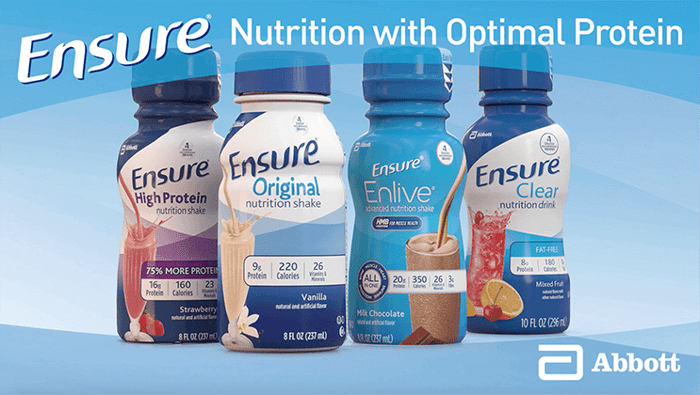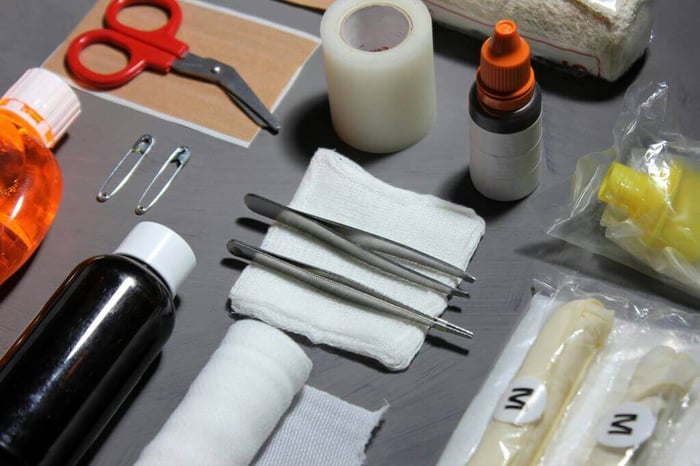Do not regret growing older. It is a privilege denied to many. These words by an unknown author suggest that we should embrace the aging process and carpe diem, as it were. Indeed, it would be surprising if any aging person wouldn’t want to age with grace and dignity and remain fit, healthy and happy until the very end.
The aging process, however, brings with it a number of unique health challenges. Some of these challenges are inevitable, but many can be avoided or mitigated if we are proactive. One such inevitable age-related change is immunosenescence, the gradual detrioration of immune health. According to this National Institutes of Health report, the degree and rate of decline are significantly influenced by several lifestyle factors, including diet and exercise.
In this article, we will focus on the link between nutrition and immune cell health and the strategies we can adopt to minimize immune system dysfunction. While it is inevitable that the immune system will weaken to some degree, the damage can be limited through a healthy diet.
Aging and the Weakening Immune System
As we grow older, our immune system, which is responsible for protecting our body against infections and diseases, undergoes changes. These changes can affect various components of the immune system, making it less effective in responding to new threats. Let’s look at the changes.
· The thymus, an organ crucial for the development of T cells (a type of immune cell), becomes less active with age. This leads to a reduced production of new T cells, which play a vital role in recognizing and fighting infections.
· The activity of immune cells, such as macrophages and dendritic cells, may decrease or become less efficient. These cells are responsible for detecting and eliminating harmful invaders like bacteria and viruses.
· B cells, another type of immune cell, produce antibodies that target specific pathogens. With age, the ability of B cells to generate a strong and specific antibody response diminishes, making it harder for the body to combat infections.
· On the flip side, there is often an increase in chronic, low-level inflammation in the body as it ages. This chronic inflammation can contribute to various age-related diseases.
The most common health risks associated with immunosenescence are:
· Increased vulnerability to infections, including respiratory infections, flu, and pneumonia.
· Reduced ability to respond effectively to vaccines, with a higher risk of preventable diseases.
· Slower healing wounds due to a decline in the immune system's ability to repair and regenerate tissue.
· Higher risk of autoimmune disease, as the immune system may become overactive and mistakenly attack the body's own tissue.
· Greater cancer risk because the weakened immune system may struggle to identify and eliminate cancer cells, potentially increasing the risk of cancer development and progression.
Key Nutrients to Support the Immune System
A balanced diet is one of the cornerstones of a healthy body. The immune system, another cornerstone, is equally dependent on diet, in particular four key nutrients that we discuss here.
Protein
Protein is crucial for creating and repairing white blood cells. It has several other functions that all contribute to overall health. It is, therefore, important to ensure an adequate intake. Look for lean protein sources like meat, fish, chicken, turkey, beans, lentils, and eggs. Smaller, protein-rich snacks or shakes can help overcome the challenges of decreased protein utilization with age.
Vitamins and Minerals
Certain vitamins and minerals are pivotal in immune function. Vitamin A maintains healthy mucous membranes, Vitamin C acts as a potent antioxidant, Vitamin D regulates the immune system, and Vitamin E protects cells from damage and inflammation. Essential minerals like zinc, iron, and selenium contribute to proper immune cell function and protection against oxidative stress. A diverse diet featuring foods such as sweet potatoes, citrus fruits, fatty fish, and lean red meat provides these vital nutrients.
Probiotics and Prebiotics
Probiotics are beneficial live bacteria that help maintain a healthy balance of microorganisms in the gut. They enhance gut barrier function, modulate immune responses, and reduce inflammation, thus supporting overall immune health.
Prebiotics are non-digestible fibers that serve as food for beneficial gut bacteria. They promote the growth of probiotics, enhance gut barrier integrity, modulate immune responses, and have anti-inflammatory effects, contributing to a healthy gut microbiome and immune system.
Dietary Issues
Despite the best intentions, many older people find it difficult to maintain a healthy diet. Reduced appetite, difficulty chewing, and social isolation can affect nutritional intake. Dental issues may necessitate modifications to food textures, such as softer options or pureed meals.
Balanced and varied diets are key to supporting immune health. Planning meals, involving family members or caregivers, and incorporating flavorful elements enhance the appeal of nutritious choices. If dietary needs cannot be consistently met, supplements may be required to fill nutritional gaps.
For more details on preparing healthy meals, read this article. If your nutrition plan includes supplements, contact the team at LL Medico for expert assistance. We have been active in the field of senior care products for over 25 years. Whether you need nutritional supplements, diabetes supplies or respiratory care products, LL Medico have your back.
Additional Tips for Boosting Immune Health
Lifestyle Factors
Lifestyle plays an important role in supporting a strong immune system. Regular exercise, even gentle walks or low-impact exercises, enhances circulation and improves immune cell effectiveness. Managing chronic stress through activities like meditation and social engagement can boost overall well-being and immune function.
Avoiding Nutritional Deficiencies
Understanding common nutritional deficiencies in older adults facilitates better management of immune health. Deficiencies in vitamin D and B12 can lead to increased infection risks and cognitive issues. Inadequate protein, zinc, and selenium intake weaken the immune system. Preventing nutritional deficiencies through balanced, nutrient-dense diets and, if necessary, vitamin and mineral supplements is vital for optimal health.
It’s always a good idea to consult a dietician or healthcare professional to discuss a tailored nutrition plan. Beyond generic dietary recommendations, personalized nutrition advice considers chronic conditions, allergies, dental issues, and taste preferences. Healthcare providers also take into account supplement safety, individual health conditions, and nutritional gaps to ensure that the nutritional plan meets the patient’s specific needs.
Conclusion
The link between good nutrition and a strong immune system in older people is undeniable. By prioritizing a diet rich in immune-boosting nutrients, staying hydrated, and maintaining a healthy lifestyle, you can significantly influence your body's ability to fight off infections and stay healthy throughout your golden years. Remember, you have the power to make informed dietary choices that contribute to a strong immune system and a vibrant life. Don't hesitate to consult a registered dietitian or healthcare professional for personalized guidance on creating a diet to support your immune health.







 855-422-4556
855-422-4556 Chat
Chat E-Mail
E-Mail Monday - Friday 9:00AM to 5:00PM EST
Monday - Friday 9:00AM to 5:00PM EST





 Shopping With LL Medico
Shopping With LL Medico
 855-422-4556
855-422-4556